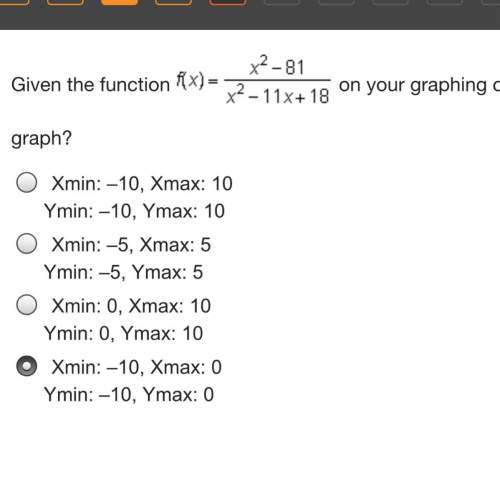
Mathematics, 03.10.2019 01:00, gabbym39077
Use mathematical induction to prove that if a ∈ ℝ and r≠1then a+ar^1+ar^2++ar^(n+1)=a(r^n+1)/(r-1 ).

Answers: 2
Other questions on the subject: Mathematics

Mathematics, 21.06.2019 18:20, ellenharley7
What value of x is in the solution set of 4x - 12 s 16 + 8x? -10 -9 -8 -7
Answers: 1

Mathematics, 21.06.2019 22:30, jcazares3558
Abag contains 10 white golf balls and 6 striped golf balls. a golfer wants to add 112 golf balls to the bag. he wants the ratio of white to striped gold balls to remain the same. how many of each should he add?
Answers: 2

Mathematics, 21.06.2019 23:30, andreawright13
The complement of an angle is one-sixth the measure of the supplement of the angle. what is the measure of the complement angle?
Answers: 3
Do you know the correct answer?
Use mathematical induction to prove that if a ∈ ℝ and r≠1then a+ar^1+ar^2++ar^(n+1)=a(r^n+1)/(r-1 )....
Questions in other subjects:


Mathematics, 10.05.2021 18:00

Advanced Placement (AP), 10.05.2021 18:00

Business, 10.05.2021 18:00

Mathematics, 10.05.2021 18:00



History, 10.05.2021 18:00

English, 10.05.2021 18:00


 .
. : we have
: we have  . So the equality holds for
. So the equality holds for  : we have
: we have  . So the equality holds for
. So the equality holds for  can continue to the next step.
can continue to the next step. . In this case the hypothesis is:
. In this case the hypothesis is: .
. (using that the equality holds for
(using that the equality holds for  .
. .
. .
. .
. .
.




